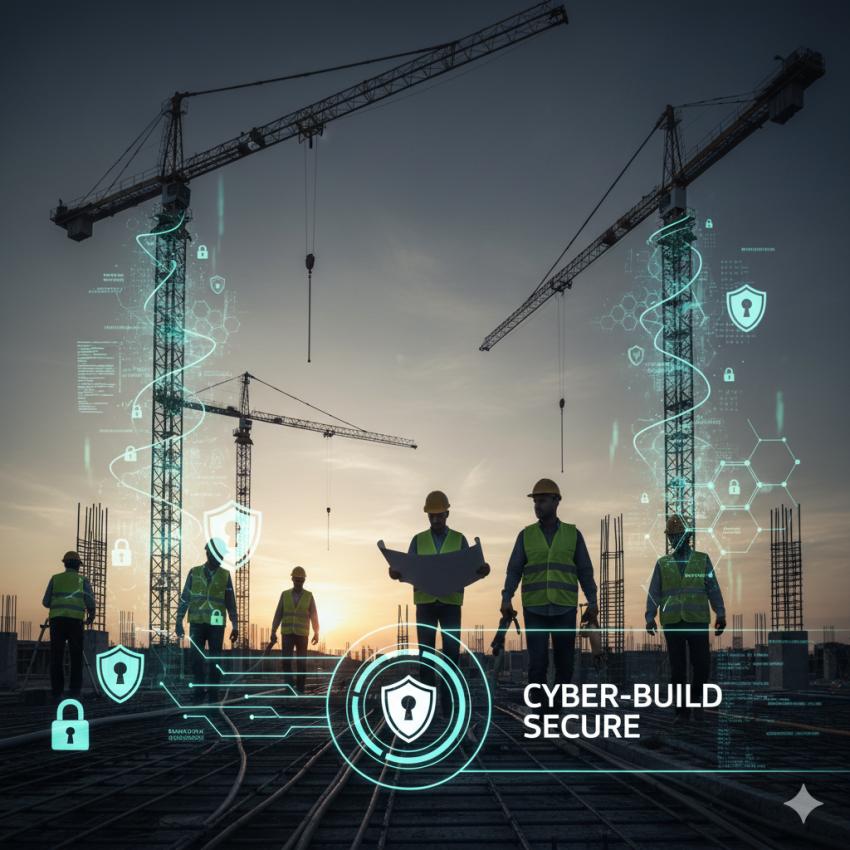
The construction sector is experiencing a digital transformation. Technology, such as automated project tracking and cloud-based collaboration solutions, is now the backbone of construction companies' ability to plan, design, and deliver projects efficiently. Nonetheless, with growing reliance on digital systems, construction is now an attractive target for hackers.
While sectors such as finance and healthcare have understood the meaning of cybersecurity for a long time, the construction environment is still catching up. The breach of The Branch Group, Inc. Data Breach in early 2025 serves as a cautionary tale—that even organizations built around infrastructure, historically not thought to be built around digital assets with sensitive data, are now clearly of interest to cyber attackers.
A Growing Digital Footprint Means Growing Risk
Construction firms manage massive amounts of confidential data: employee files, financial dealings, the bid process, vendor details, and government-issued ID numbers. And as construction projects become more connected—turning to Building Information Modeling (BIM), IoT devices, or smart construction systems—each added technology creates added risk.
Furthermore, many firms still use outdated or legacy software or have siloed, fragmented third-party vendors that do not necessarily have consistent security standards in place. Each of these issues creates vulnerability to your network. A single phishing email or unpatched security vulnerability can result in a major data compromise that leads to the shutdown of daily operations and could expose sensitive data onto the dark web.
Why Hackers Are Targeting Construction Firms
Cybercriminals have learned that construction firms often lack the stringent cybersecurity defenses seen in other sectors. They are viewed as “soft targets” for several reasons:
Valuable Personal and Financial Data: Payroll details, Social Security numbers, and payment card information are highly marketable for identity theft and financial fraud.
Extensive Vendor Ecosystems: Each project may involve dozens of subcontractors, suppliers, and consultants—each introducing potential entry points for cyberattacks.
Legacy Systems and Weak IT Governance: Many construction companies depend on legacy software that isn’t regularly updated, leaving them exposed to known exploits.
Low Cyber Awareness: Field staff and administrative teams often lack cybersecurity training, making them more likely to fall victim to phishing or social engineering attacks.
Lessons from The Branch Group, Inc. Breach
In January 2025, The Branch Group, Inc. reported a security incident in which an unauthorized person accessed its systems. Sensitive information, including names, Social Security numbers, and government identification, was compromised. The company took appropriate actions to investigate and notify impacted individuals, but the incident served as an opportunity to recognize an important fact: companies with physical operations have its place and are now a digital business, and must secure themselves like any other digital business.
This case is typical of a larger trend where hackers target industries in transitional phases. Often, construction firms transition to a more "modernized" approach without cybersecurity approaches, and this exposes them more to data theft, ransomware, and operational interruption.
Building Stronger Data Privacy Policies
A strong data privacy framework is essential not just for compliance but also for business continuity. Construction companies can take several steps to strengthen their digital defenses:
Develop Comprehensive Data Governance Policies: Clearly define how data is collected, stored, shared, and destroyed. Assign accountability for data management across all departments.
Encrypt All Sensitive Information: Use end-to-end encryption for financial, personal, and project-related data both in transit and at rest.
Regular Security Assessments: Conduct vulnerability scans, penetration testing, and risk audits to proactively identify weak spots.
Third-Party Oversight: Ensure that all vendors and subcontractors meet the company’s cybersecurity standards before handling data.
Employee Training: Cybersecurity should be part of company culture. Regular awareness sessions can prevent phishing and credential theft.
Incident Response Planning: A well-tested response plan minimizes downtime, ensures timely communication, and reduces reputational harm in case of a breach.
The Road Ahead for 2025 and Beyond
Managing data privacy is no longer the sole responsibility of the IT department, it has become necessary for operations. As companies expand their digital footprint the privacy policies must adapt to the intricate landscape of today's construction ecosystem. Clients, employees, and partners expect your data to be treated with care, and a single incident of a breach creates years of mistrust.
The future of the construction industry will not just depend on innovation or infrastructure but also on digital resiliency. From companies that suffered breaches like The Branch Group, we can learn that cybersecurity must be embedded into every business operation. Construction companies must learn to protect assets, comply, and plan for longevity in 2025 and beyond.


